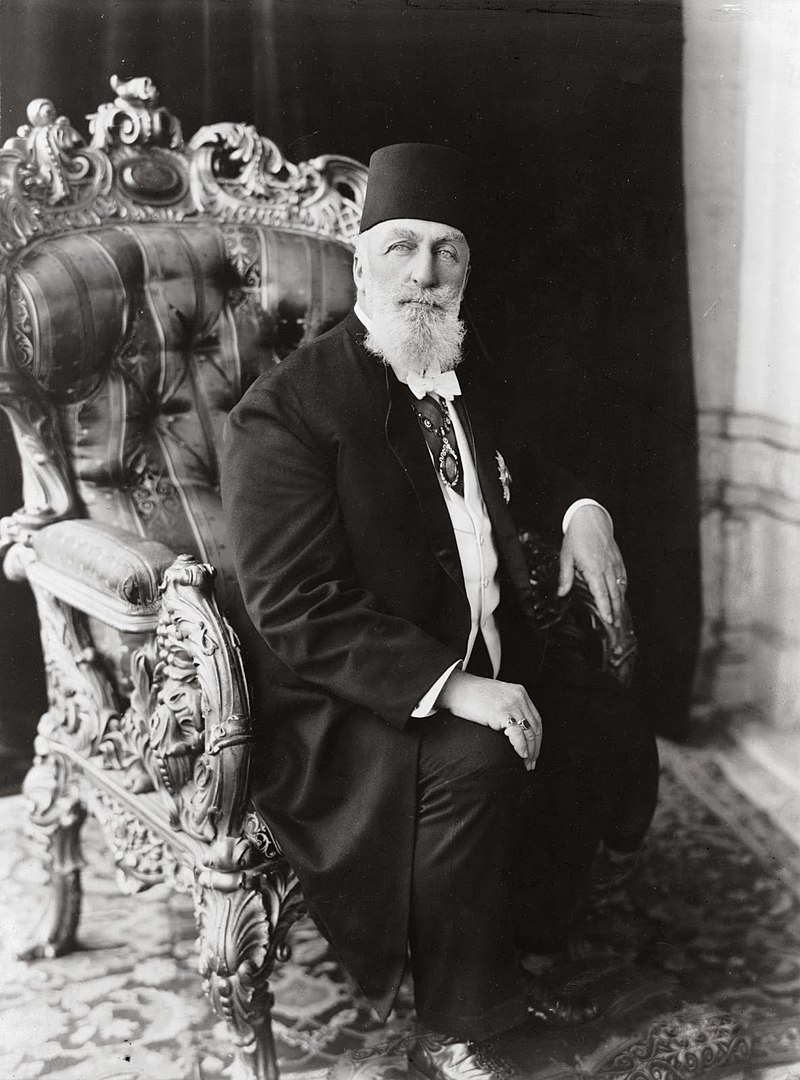On August 3rd, 2014, the jihadist armies of the self-proclaimed Islamic Caliphate invaded and conquered the region of Sinjar in Northern Iraq. The elders of Sinjar were gunned to death. The men were murdered. And the women were dragged from their villages, loaded in white trucks and driven south for sale at slave auctions. As the white vans of the Caliphate pulled away, five thousand dead were left in their wake.
The massacre at Sinjar stunned the world and contributed to the US’s redoubled involvement in the region. But this was not the first time that Sinjar had been subjugated to a group of invaders calling themselves the “Islamic Caliphate.” Over 1300 years ago, the craggily mountains of Northern Iraq fell to ISIS’s ancient namesake. Then, as now, the scene was one of horrific and senseless violence.
1300 years ago these scenes would not have raised an eyebrow. The invasion, the demand of submission, the extermination, and the enslavement – these were the staple tropes of medieval warfare. The modus operandi of ancient empires.
And though these episodes, captured on shaky camcorders, seem senseless and brutal in our modern world, within the context of ISIS’s ideology they make perfect sense.
In so many ways, ISIS has tried to seize the mantle of an ancient empire, and not just in its barbaric practices on the battlefield. Dabiq, ISIS’s recruitment and propaganda magazine, states: “the modern day slavery of employment, work hours [and] wages, is one that leaves the Muslim in a constant feeling of subjugation.” Minting gold coins, destroying modern borders, re-creating the medieval slave markets, ISIS has tried to present itself as the ultimate reactionary antidote to modernity.
Photo (above): The “Original” Caliphate. Photo Credit: Wikipedia
But, as ISIS attempts to resurrect an empire of antiquity, it is beginning to experience many of the same problems that have destroyed the empires for which it feels such nostalgia
By looking at the empires that ISIS admires and hopes to emulate, we may get a glimpse of ISIS’s own strengths and weaknesses. Examining the last state to claim the title of “Caliphate” before ISIS, the Ottoman Empire, we will see many fundamental similarities with ISIS – similarities that can give us a clue as to how to undermine them.
Plunder Economics
Like an ancient empire, ISIS has an economy based on capture and distribution of booty and plunder, human chattel included. A huge portion of its revenue in 2014 and 2015 came from robbing banks within its borders and selling ancient artifacts, and the prospect of owning a captured prisoner of war is a major selling point to attract young men from the West.
When the women of Sinjar were brought to the slave markets in southern Iraq, their captors gave them the title sabaya, an old Arabic word for female captives of war. The title was so archaic, that many of the women didn’t know what it meant.
Related articles: “DROWNING IN OIL: FOUR COUNTRIES SUFFERING FROM LOW OIL PRICES”
“EUROPE’S FLIGHT FROM THE REFUGEE CRISIS“

Resurrection of ancient traditions like institutionalized sex slavery is not just a hallmark of ISIS barbarity, it is also an important part of ISIS economics and recruitment. But this tactic is one with ancient roots. Let’s take a look at the Ottoman Empire:
Photo (left): The Islamic State’s Current Extent in Grey. Photo Credit: Wikipedia
Like ISIS, the Ottoman Empire began with a group of 400 of what would be called today “militants,” arriving from elsewhere. Like ISIS, these fighters set up a little principality which began to lash out aggressively against its neighbors. The polities of Anatolia fell first, then the outer provinces of the old Byzantine Empire. Contemporaries were stunned at the speed and effectiveness of the Ottoman advance, but few in the early days saw them as anything but an upstart band of vicious warriors.
As the Ottomans expanded rapidly into the Balkans, Mesopotamia and Egypt, the military classes became rich and satiated. It was good to be an Ottoman warchief. Serving to enlarge the state guaranteed property and slaves, and the reciprocal arrangement of service and reward established a bond between the leadership and its fighters and encouraged eager recruits to enlist.
The Ottoman economy, like that of ISIS, therefore became heavily dependent on conquest, expansion and seizure of property and booty for distribution.
The warriors of the Ottoman state enjoyed the rich spoils of war as the Empire expanded, and as more spoils were accumulated, expansion became all that much easier. Army loyalties were maintained through this gift economy, and no one was displeased so long as the plunder kept flowing.
But the Ottoman state could not expand forever. As the 16th and 17th centuries dawned, the Ottomans found that their domains now extended right to the limits of their powerful rivals. Easy conquests were a thing of the past, and as the fidgety Empire was forced to sit still, it descended into stagnation and malaise.
The famous Battle of Vienna in 1683 was a desperate attempt on the part of the Ottomans to regain momentum and the stability that came with it. But it was in vain. An empire founded on rapid conquest was not designed to dole out pensions.
Though one story happened over the course of centuries, and the other over the course of months, the parallels are clear. At the end of its first period of growth  and expansion, ISIS is now bounded by powerful, hostile states on all sides – Iran to the east, Saudi Arabia to the south, Turkey to the north and Israel to the southwest.
and expansion, ISIS is now bounded by powerful, hostile states on all sides – Iran to the east, Saudi Arabia to the south, Turkey to the north and Israel to the southwest.
Photo (right): The Ottoman Empire at its Greatest Extent Photo Credit: Wikipedia.
Indeed the whole world opposes it, and though they’ve opened up new cells elsewhere in the Islamic World, ISIS appears to be on the defensive in its heartland for the first time in months. And like a rocket that’s run out of fuel, ISIS may shift in appearance from a fiery jet to a hollow tube.
Universal Empire
The word “Caliphate” comes from the Arabic word khalifah meaning “successor.” It is a title conferred on the deputies and successors of Mohammed who personally organize and direct the efforts of Islam outward.
ISIS’s usurped use of “caliph” and “caliphate” is not just a semantic fun fact. One of the things which makes ISIS different from previous anti-Western regimes in the Middle East like the Taliban, Iran’s theocracy and the Ba’ath party is ISIS’s purpose.
ISIS does not exist to “govern” Iraq and Syria. It does not exist to drive out pernicious influences of the West. It does not exist to organize terrorist attacks against Europe. It may do all these things, but it is in service to a larger goal.
ISIS exists to spread its doctrine around the world. Their ideology is intertwined with a prophecy of global conquest and of cleansing apocalypse.
Other movements and regimes have utilized terror, propagated a fundamentalist interpretation of Islam and called for the expulsion of all Western influences in the region. But only ISIS has a vision of world domination and of universal world empire that is irrevocably intertwined with its existence. In this way, ISIS bears some more ideological resemblance to a premodern empire than it does to a generic terrorist group or autocratic regime.

It was 600 years ago that the Ottoman chieftain declared first himself “Caliph” of Islam. The Ottoman Caliphs did not long for an apocalypse, but they did aspire to become a universal empire. From the moment of its inception until the abolition of the title in 1924, the Ottoman Sultan had a dual role – the master of his own domain, and the rightful master of everyone else’s. But as the Ottoman state began to slow and stagnate, the spirit of the “Ottoman Sultan” became an anachronism and a hindrance. The master of the world does not easily settle into managing a measly portion of it, and as the states of Europe focused on internal improvement and the cultivation of their status as “great powers,” the Ottomans engaged in desperate ploys to lash outward and regain the trajectory that justified their master’s existence.
Photo (above): Mehmed VI, the Last Official Caliph of Islam Before the Advent of ISIS Photo Credit: Wikipedia
It seems that ISIS’s raison d’etre, the sentiment of its existence, derives almost exclusively from its expansion. Like Alexander’s empire, like Caesar’s, like Osman’s, this new “Caliphate” is not an end in and of itself as a modern state is. It is but a means toward a different end. Glory. Universal domination. Fulfillment of a prophecy. And it is nothing if it is not advancing toward its inevitable conclusion.
When Alexander saw the breadth of his domain, he wept for there were no more worlds to conquer.
For a state whose spirit derives from expansion, whose economy is sustained by conquest and whose existence is justified only in the possibility of global domination, there is one great problem.
ISIS has experienced the boons that so many of its ancient predecessors have experienced – rapid conquest, immediate renown and the inspiration of dread in its enemies. But there are clouds on the horizon. ISIS is suffering from serious financial troubles, military infighting and general administrative ineptitude. Its infrastructure is crumbling; its revenue has become less predictable; and its ostensible subjects are fleeing en masse.
What we could be seeing in ISIS is a microcosm unfolding in real time of the progression of so many ancient empires that have come before it. The world has taken note of ISIS and it has become harder for it to conquer lands, to capture slaves and to carry off booty. It has become harder for it to advance the mission for which it was erected and for which anyone pledged support. It has become harder for ISIS to be ISIS.
This is certainly not to say that ISIS shouldn’t be vigorously opposed, or that its destruction is a fait accompli. To the contrary, it is likely that the specter of ISIS will haunt us for years to come. But we can conclude that being on the defense is anathema to ISIS. Antithetical to what it represents. Untenable, as it was untenable to the premodern empires we read about in our history books.
Eradicating ISIS will be difficult. But containing it is a first step, not merely because it stops the contagion, but also because it erodes what it means to be ISIS. And instead of facing a dynamic, expanding and flexible power, we may face a miasmic, crumbling and rotting one.
_ _











